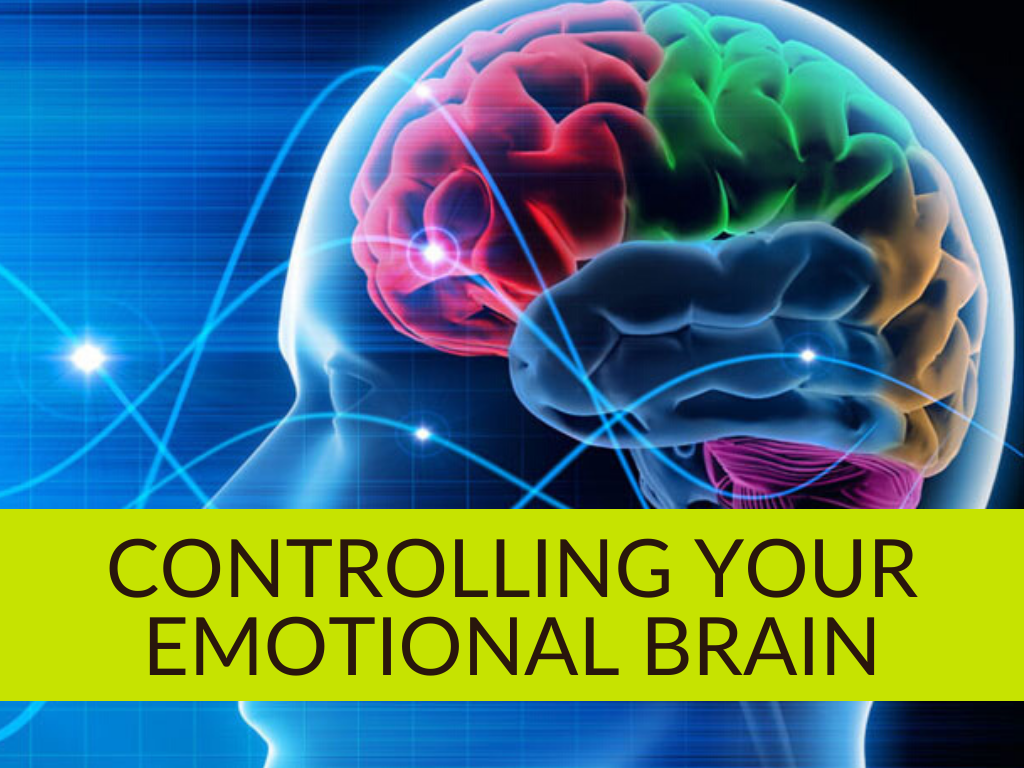Controlling your emotional brain
Your emotional brain is running the show
How to talk to your emotional brain.
Your emotional brain is running the show. You may not realise it and you may not like it, but it’s the truth. Sure, sometimes we are able to recognise when we’re being ‘emotional’ and we are able to control our actions so that we choose a productive behaviour rather than an unproductive one, but those situations aren’t that common.
Furthermore, there are times when your emotional brain is running the show and you don’t even realise it! Take the example of a common social experiment known to psychologists as the ‘Ultimatum Game.’
Now, in this game, there are two players. Player A gets a sum of money and decides how they want to split it with Player B. But once Player A makes the decision, Player B also gets a choice (unbeknownst to Player A). Player B can decide whether they take their share of the money and walk away OR they can veto the whole transaction so that no one gets anything.
So, you can guess what happens. Player A gets $100 and gives Player B $50 – everyone walks away with the cash. But if Player A gets $2000 and gives Player B $50 – then Player B flips out and everyone walks away empty handed.
Consider this as a pure logic transaction. Is Player B better off with $50 or nothing? Obviously $50. But they have turned this into an emotional transaction and now they are walking away with nothing.
Astoundingly a very very high percentage of people behave in this way when faced with this problem. And it is illogical. But it goes to show that the emotional brain is running the show because the people who veto feel like it’s completely normal behaviour – they don’t question the emotional brain or the decision. Why?
Different Goals. Different Brains.
You see, our Thinking Brain and our Emotional Brain have very different goals. Our Thinking Brain has high level goals like, “how do I hit this deadline,” or “what can I do to achieve this goal or get this promotion.” The Emotional Brain, on the other hand, is a lot more basic. It’s goals are simply: Don’t Die. Seek Pleasure. Avoid Pain.
In the Ultimatum Game, the Thinking Brain’s goals (put $50 in your pocket, you fool), are superseded by the Emotional Brain’s goals (punish this person so you feel good about yourself and don’t lose status).
If your body were a car, it’s like the Emotional Brain is the driver and the Thinking Brain is the navigator. And no matter how much the navigator tells the driver where to go, the driver can ultimately do what they want. But, sometimes the navigator is successful. It convinces the Emotional Brain to do something other than what it instinctively wants to do. If we can make that happen more often, then we can control things like stress, frustration, anxiety and generally exert better self control.
What to Say to Your Emotional Brain
The cure for emotional overload is logic and self-assessment. By switching your Thinking Brain on and serving up some questions that helps your Emotional Brain look at the facts, it causes that emotional reaction to dissipate.
But you have to talk to your emotional brain the right way. Here are some ideas for questions as well as some potential example answers:
1. What are you feeling? A. I am feeling stressed and a little anxious.- Why are you feeling that? A. Because I feel like I didn’t prepare for this meeting well enough
- Is that true or does is just seem like it’s true? A. Well, I spent two hours preparing last night. Maybe that is enough?
3. Is there an example from the past? A. Yes there is. I have had meetings like this in the past. I always seem to feel like I haven’t prepared. Usually they go well
- How did you cope with it? A. One time they asked me a question I was unsure about. I just said I wasn’t sure but that I would find out.
- How did that turn out? A. Pretty good. (if it didn’t turn out well, the next question would be “well, what would you do differently this time?)
This is perfect conversation to have in a journal. Writing this down is infinitely more effective than just saying it in your head. And if you can do this regularly – whenever you feel those unhelpful emotions creeping in – then you get better and better at negotiating with that Emotional Brain. Before long, the navigator will have as much control as they need.
If you’re interested, take a look at our online course: Journalling Essentials – which deals with how to use a journal to learn emotional control.
** Tony Wilson is a Workplace Performance Expert focussed on helping leaders build the environment for high performance. His insights into performance science and it's application in the workplace will make you re-think the way that you approach leadership, culture change, high performance and productivity. Tony has an MBA and a BSc majoring in physiology and combines the two for a different perspective. He is also the author of Jack and the Team that Couldn't See and delivers workshops and keynote presentations around the globe.
